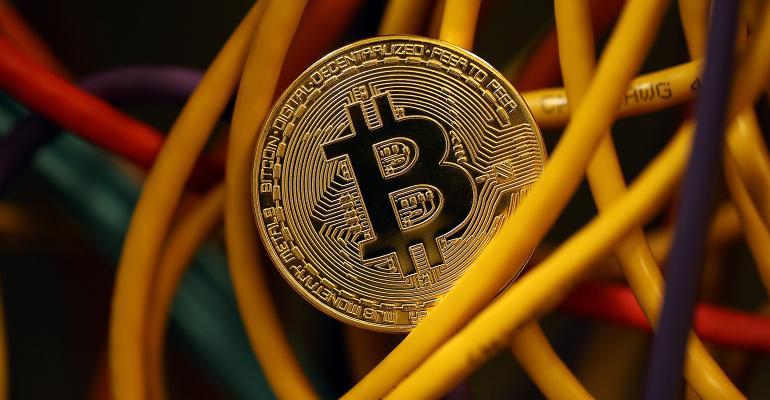Joshua Brown, the CEO of Ritholtz Wealth Management and Howard Lindzon, the founder and general partner of Social Leverage, headlined a one-day Consensus Invest conference on Tuesday dedicated to digital currencies, tokens and technologies—given the media hysteria around one particular cryptocurrency—spent most of their time on bitcoin.
Both have invested in the digital asset or, depending on who you talk to, currency. Bitcoin, which has had a stratospheric rise in value over the past few years, has been likened by some as a techno-utopian currency for a digital commercial future, free of middle-players like central banks and regulators, and criticized by others as being a Ponzi scheme or a poorly understood investment mania akin to tulip bulbs or equity in Pets.com circa year 2000. JPMorgan Chase CEO Jamie Dimon has said he would fire anyone in his bank dealing in bitcoin, but others on Wall Street, including Goldman Sachs CEO Lloyd Blankfein, said he wasn’t endorsing or rejecting it. “Know that folks also were skeptical when paper money displaced gold,” he tweeted.
Few superlatives capture bitcoin’s increasing value this year. It started 2017 trading on various digital currency exchanges at less that $1,000 and has skyrocketed away to trading at over $11,000 on Tuesday—a new high. The digital asset class has ballooned into a market reportedly valued at more than $100 billion.
Lindzon said at the conference that years ago he was offered bitcoin at only 12 cents per unit, but declined. He didn’t regret the decision, since whatever he might have elected to invest could have been lost. His first opportunity to buy bitcoin came before a popular Japan-based exchange at the time, Mt. Gox, was hacked and some $480 million in bitcoins belonging to its customers went missing. It filed for bankruptcy.
He won’t say how much he has invested in bitcoin, or the current value of his holdings, but Lindzon said he was an “early adopter” and thinks bitcoin is here to stay.
Conference attendees, who reportedly paid some $2,000 for the one-day event, were largely outspoken digital currency enthusiasts that shared that opinion.
Lindzon asked the crowd of roughly 300 attendees to raise their hand if they owned bitcoin; nearly every attendee did so. The same happened when he asked about Ethereum, another popular digital currency. When Lindzon asked attendees how many owned Apple stock, only a few dozen raised their hands.
Brown jokingly compared the conference attendees to the type of extreme fans that show up at a Comic Con convention. He wasn’t as convinced about the merits of bitcoin as Lindzon, but was well-received. The wealth manager said he was—and still is—skeptical, but that it persists in drawing attention and he couldn’t continue to ignore it. He invested in bitcoin earlier this year.
“The Wall Street media went nuts because I think I was one of the first Wall Street people to be like, ‘I’m playing with cryptocurrencies, I’m not embarrassed about it’,” Brown said. “I owned it and kept buying.”
Like Brown, Lindzon said he is a trend follower as he sees younger generations interested in bitcoin and thinks they are likely to favor it in their portfolios over traditional asset classes.
“[My kids] are showing me the way,” Lindzon said. “They are not going to have a Wells Fargo account ... that’s a criminal organization,” he said, referencing the false account scandals that plagued the bank over recent months. The crowd almost unanimously cheered.





